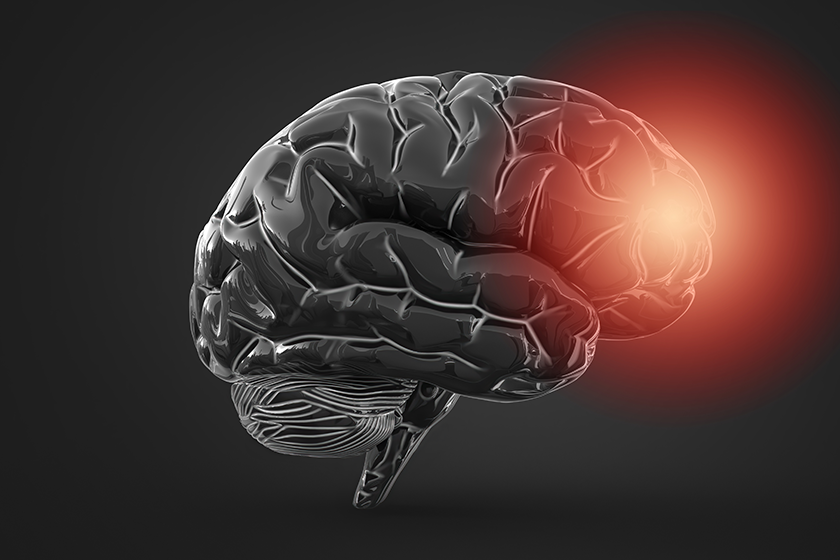Vascular dementia and Alzheimer’s disease are two common forms of dementia that affect brain health in older adults. While both conditions lead to cognitive decline, they arise from different causes and progress differently. Understanding these distinctions is essential for providing appropriate care and support to those affected. In this article, we will explore the differences between vascular dementia vs. Alzheimer’s disease, shedding light on how each condition uniquely impacts the brain and behavior.
Progression Patterns Are Distinct in Each Condition’s Development
Vascular dementia and Alzheimer’s disease develop in distinct ways. Vascular dementia often results from strokes or other conditions that block or reduce blood flow to the brain, leading to a sudden onset of symptoms.
On the other hand, Alzheimer’s disease progresses gradually, with brain changes occurring over years before symptoms become noticeable. This difference in progression means that individuals with vascular dementia may experience a more abrupt decline, whereas those with Alzheimer’s may exhibit more steady cognitive deterioration over time.
Memory Loss Onset Varies Between Alzheimer’s and Vascular Dementia
Memory loss is a hallmark of both Alzheimer’s and vascular dementia, but its onset differs. In Alzheimer’s disease, memory problems typically appear early, as the disease first affects areas of the brain responsible for memory formation.
This leads to challenges with recalling recent events or learning new information. In contrast, vascular dementia may initially cause more varied symptoms, such as difficulty with problem-solving or organizing thoughts, with memory loss appearing later as the condition progresses.
Cognitive Symptoms Manifest Differently in Vascular Dementia vs. Alzheimer’s
Cognitive symptoms in vascular dementia and Alzheimer’s disease present differently due to the distinct brain regions affected by each condition. Alzheimer’s disease primarily impacts memory, language and spatial awareness, leading to difficulties in recalling words, recognizing faces or navigating familiar environments.
Vascular dementia, however, may cause more pronounced issues with decision-making, attention and processing speed, reflecting the areas of the brain that are affected by reduced blood flow. These differences in cognitive symptoms can significantly influence how each condition is managed and treated.
Behavioral Changes Present Uniquely in Each Dementia Type
Behavioral changes are common in both vascular dementia and Alzheimer’s disease but manifest uniquely in each condition. Individuals with Alzheimer’s may experience mood swings, irritability or depression, often due to frustration with their cognitive decline.
In contrast, vascular dementia can lead to more abrupt changes in behavior, such as sudden mood shifts, apathy or even aggression. The behavioral symptoms often reflect the specific areas of the brain that are affected by the respective conditions and they require different approaches to management and care.
Risk Factors and Prevention Strategies Differ for Both Conditions
The risk factors for vascular dementia and Alzheimer’s disease vary, leading to different prevention strategies. Vascular dementia is closely linked to cardiovascular health, with risk factors such as high blood pressure, diabetes and smoking contributing to the condition. Prevention efforts focus on managing these health conditions to reduce the risk of strokes or other blood flow issues.
Alzheimer’s disease, on the other hand, is associated with age, genetics and lifestyle factors like diet and exercise. Prevention strategies for Alzheimer’s emphasize healthy aging practices, including regular physical activity and a balanced diet rich in antioxidants.
Diagnostic Approaches Vary Between Alzheimer’s Disease and Vascular Dementia
Diagnosing vascular dementia and Alzheimer’s disease requires different approaches due to the distinct causes and progression patterns. Alzheimer’s is typically diagnosed through cognitive tests, brain imaging and sometimes genetic testing to identify the characteristic brain changes associated with the disease.
Vascular dementia diagnosis, however, often involves identifying evidence of stroke or other vascular issues through brain imaging, along with assessing cognitive function. These diagnostic differences highlight the importance of a thorough medical evaluation to determine the specific type of dementia and guide appropriate treatment.
Treatment and Management Options Differ for Each Dementia Condition
Treatment and management options for vascular dementia and Alzheimer’s disease are tailored to the specific characteristics of each condition. For Alzheimer’s disease, treatment focuses on slowing cognitive decline with medications, as well as managing symptoms like anxiety or depression.
In contrast, managing vascular dementia involves addressing the underlying cardiovascular issues, such as controlling blood pressure or cholesterol levels, to prevent further damage to the brain. Both conditions benefit from supportive care, including cognitive therapies, physical activity and social engagement, but the approaches differ based on the unique needs of the individual.
Our Retirement Community Offers Specialized Care for Vascular Dementia and Alzheimer’s Disease
Choosing the right retirement community for your loved ones is crucial, especially when it comes to providing specialized dementia care. We understand the unique needs that come with managing vascular dementia vs. Alzheimer’s and our retirement community is dedicated to offering personalized care plans that address these differences.
Our team is committed to creating a supportive environment where residents receive the highest level of care tailored to their specific conditions. Trust us to provide the compassionate and expert dementia care your loved ones deserve. Contact us today to learn more about how we can help.







